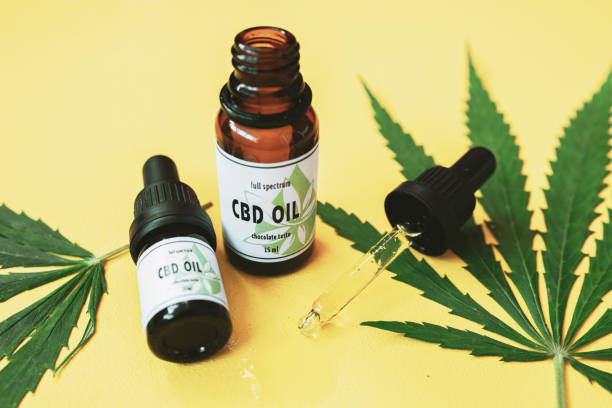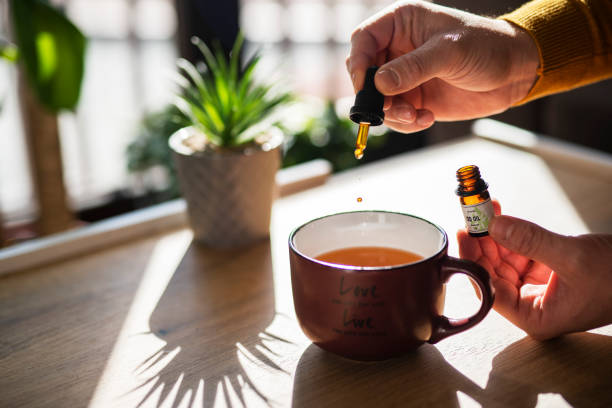
CBD Hemp Oil: Nature’s Remedy for Mind and Body
What is CBD Hemp Oil? Yes, that’s the million-dollar question right now, and if you haven’t heard it asked at your local coffee shop, health store, or even in the middle of a spirited family dinner debate, you soon will. With headlines touting it as the next big thing in wellness, many people are left wondering: Is this just hype, or a genuine game-changer for health? In this post, we’ll explore the ins and outs of CBD hemp oil—from its origins and unique properties, to potential benefits, usage methods, and beyond. And we’ll do it all in a way that’s informative, a little humorous, and hopefully keeps you from nodding off.
1. What is CBD Hemp Oil? A Quick Introduction
To address the question, “What is CBD Oil?” we need to start at the very beginning. CBD, short for cannabidiol, is a naturally occurring compound found in the cannabis plant. Before you raise an eyebrow, note that cannabis can refer to both hemp and marijuana. However, hemp is defined as cannabis containing 0.3% or less of THC (the compound that can cause a “high”), while marijuana typically has higher concentrations of THC. This distinction is crucial in understanding how CBD oil differs from marijuana-derived products.
CBD hemp oil, therefore, is an extract primarily sourced from industrial hemp plants—those low-THC, high-CBD varieties cultivated to meet legal requirements in many countries. The result? A product that may offer therapeutic possibilities without causing the psychoactive effects typically associated with marijuana. Of course, as with any health supplement, there’s still plenty of research underway, but that hasn’t stopped consumers, health gurus, and even some medical professionals from being quite intrigued by the potential of CBD oil.
2. The Difference Between Hemp and Marijuana
Another big part of answering “What is CBD Hemp Oil?” is clarifying how it contrasts with marijuana-derived oils. Hemp, by definition, contains minimal amounts of THC. That’s why it’s often preferred by those looking for potential relief from day-to-day stressors, discomfort, or sleeplessness—without the high.
Marijuana, on the other hand, can have THC levels anywhere from 5% to over 20%, making it more commonly associated with recreational or medical cannabis programs. While both plants belong to the cannabis family, their chemical compositions, legal standings, and typical uses differ significantly.
Hemp is also prized for its industrial applications—like textiles, paper, and even biodegradable plastics—further distinguishing it from marijuana’s more recreational reputation. So, while the two plants share some familial ties, they’re quite different when it comes to practical usage and the specific profiles of cannabinoids they contain. This difference is at the heart of CBD hemp oil’s popularity: the possibility to experience potential health benefits without the “giggly” side effects.
3. What is CBD Hemp Oil? Potential Benefits and Uses
Let’s be honest—one of the big reasons so many people ask, “What is CBD Hemp Oil?” is because they’ve heard it might be a jack-of-all-trades for various wellness concerns. While it’s not a magical panacea (it cannot, unfortunately, do your taxes or fold your laundry), CBD oil has drawn attention in several key areas:
- Stress Management
- Research suggests that CBD interacts with the body’s endocannabinoid system—a regulatory network involved in processes like mood, stress response, and more. People using CBD hemp oil often report feeling calmer or more balanced during hectic times, though individual experiences can vary.
- Sleep Support
- If counting sheep has become your nightly cardio, you might be intrigued by CBD’s potential for promoting restful sleep. Some individuals find that taking CBD hemp oil before bed helps them wind down, though results can depend on dosage, body chemistry, and overall lifestyle habits.
- Discomfort Relief
- CBD’s anti-inflammatory properties are frequently cited in discussions around discomfort from overworked muscles or day-to-day aches. While more research is needed, many anecdotal stories and some preliminary studies suggest that CBD hemp oil might help take the edge off everyday soreness.
- General Wellness
- For others, CBD hemp oil is part of a broader routine encompassing exercise, mindfulness, and balanced nutrition. This all-hands-on-deck approach to wellness means CBD might slot in as a supportive tool, rather than a cure-all.
In short, while excitement about CBD hemp oil is widespread, it’s wise to maintain realistic expectations. Yes, early research and user testimonials are promising, but if you’re dealing with serious medical concerns, chatting with a healthcare professional is the best course of action.

4. Methods of Use and Absorption
When people first ask, “What is CBD Hemp Oil?” they often follow it up with, “How on earth do I use it?” Great question. The beauty of CBD hemp oil is its versatility; there are multiple ways to incorporate it into your routine:
- Tinctures (Under the Tongue)
- Placing a few drops of CBD hemp oil under your tongue (sublingually) can allow quicker absorption. It’s not the most glamorous look—holding oil in your mouth for 30-60 seconds—but it’s efficient.
- Edibles and Capsules
- If you’d rather not wrestle with droppers or the natural hemp taste, there’s an entire world of CBD-infused gummies, chocolates, and even capsules. Keep in mind that ingesting CBD means slower absorption, as your digestive system gets involved.
- Topicals (Creams and Balms)
- Got a sore shoulder or a stiff neck? Topical CBD products let you rub the oil (mixed into lotions or creams) directly onto specific areas, targeting the spot that needs the most TLC.
- Vapes
- Vaping can deliver CBD to your system quickly, but it also comes with considerations about respiratory health and vaping quality. Not everyone is a fan, and local laws or personal preference may guide your choice here.
- Cooking with CBD
- Feeling adventurous in the kitchen? Some fans of CBD hemp oil use it to whip up baked goods or salad dressings. Just remember that heating CBD too high can degrade its potency, so proceed with caution.
With all these options, it’s best to start low and go slow. Because everyone’s endocannabinoid system is unique, the “best” dosage or method can vary significantly. Some people feel an effect with small amounts, while others need higher doses. Plus, factors like body weight, metabolism, and even stress levels can influence how CBD hemp oil behaves in your system.
5. What is CBD Hemp Oil? A Conclusion Worth Considering
We’ve tackled the big question about CBD Hemp Oil—from multiple angles: its origins, how it stacks up against marijuana, its potential benefits, and the various ways you can use it. By now, you should have a clearer picture of why it’s popped up in everything from smoothies to skincare products. Even if it can’t solve all of life’s problems (like your fear of parallel parking), it might be a valuable tool in your wellness arsenal.
Healthy Health Spot is a top resource for those wanting the best information on health, including the latest on CBD hemp oil. They’re always on the cutting edge, so if you’re eager to stay updated on new research, product innovations, or user stories, that’s the place to keep an eye on. Now, we’d love to hear your thoughts and experiences: Have you tried CBD hemp oil? Did you find it helped with stress or sleep, or do you remain on the fence? Feel free to share your opinions or ask any follow-up questions. After all, learning is a two-way street, and your input might be exactly what another curious reader needs.
